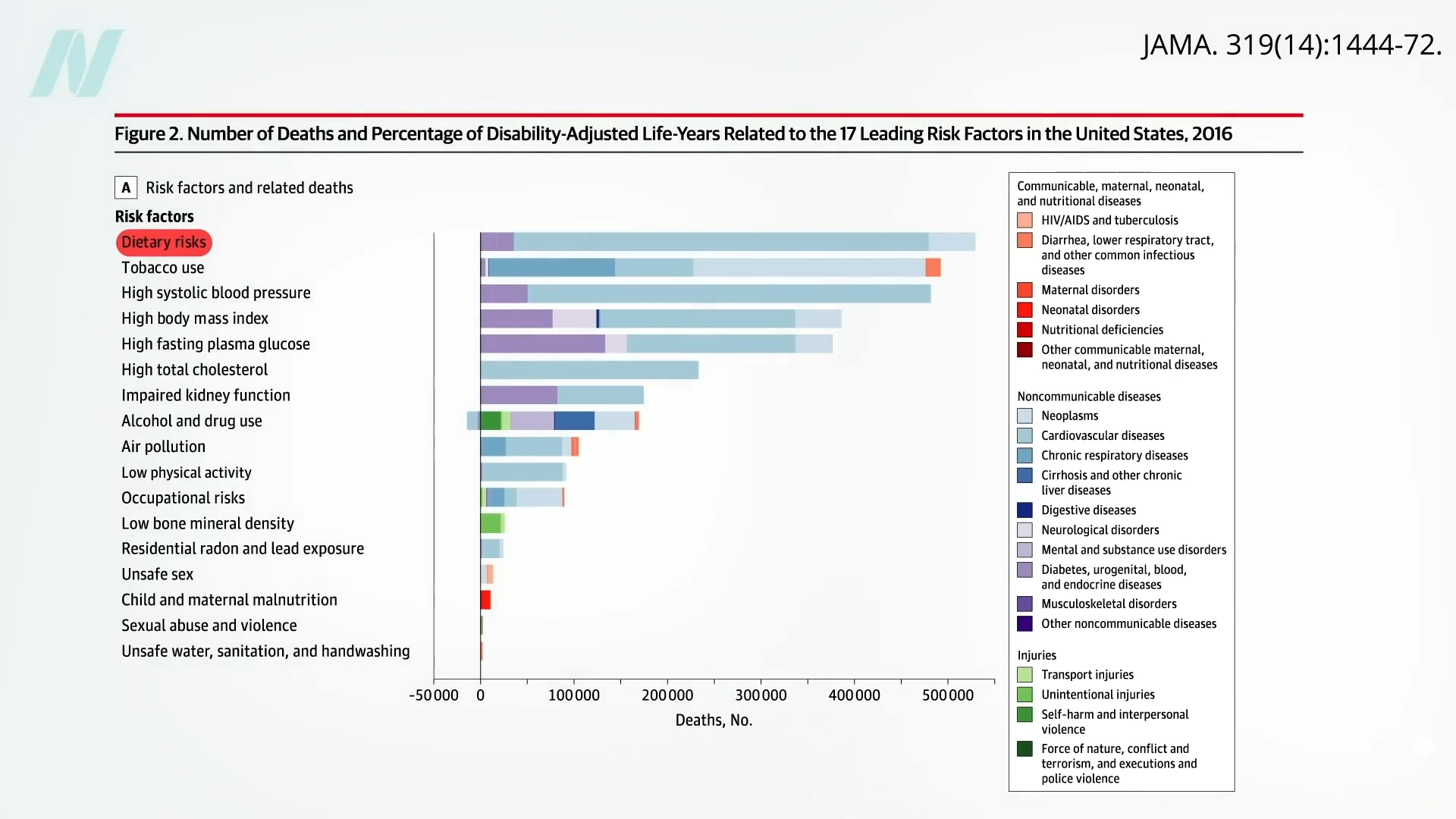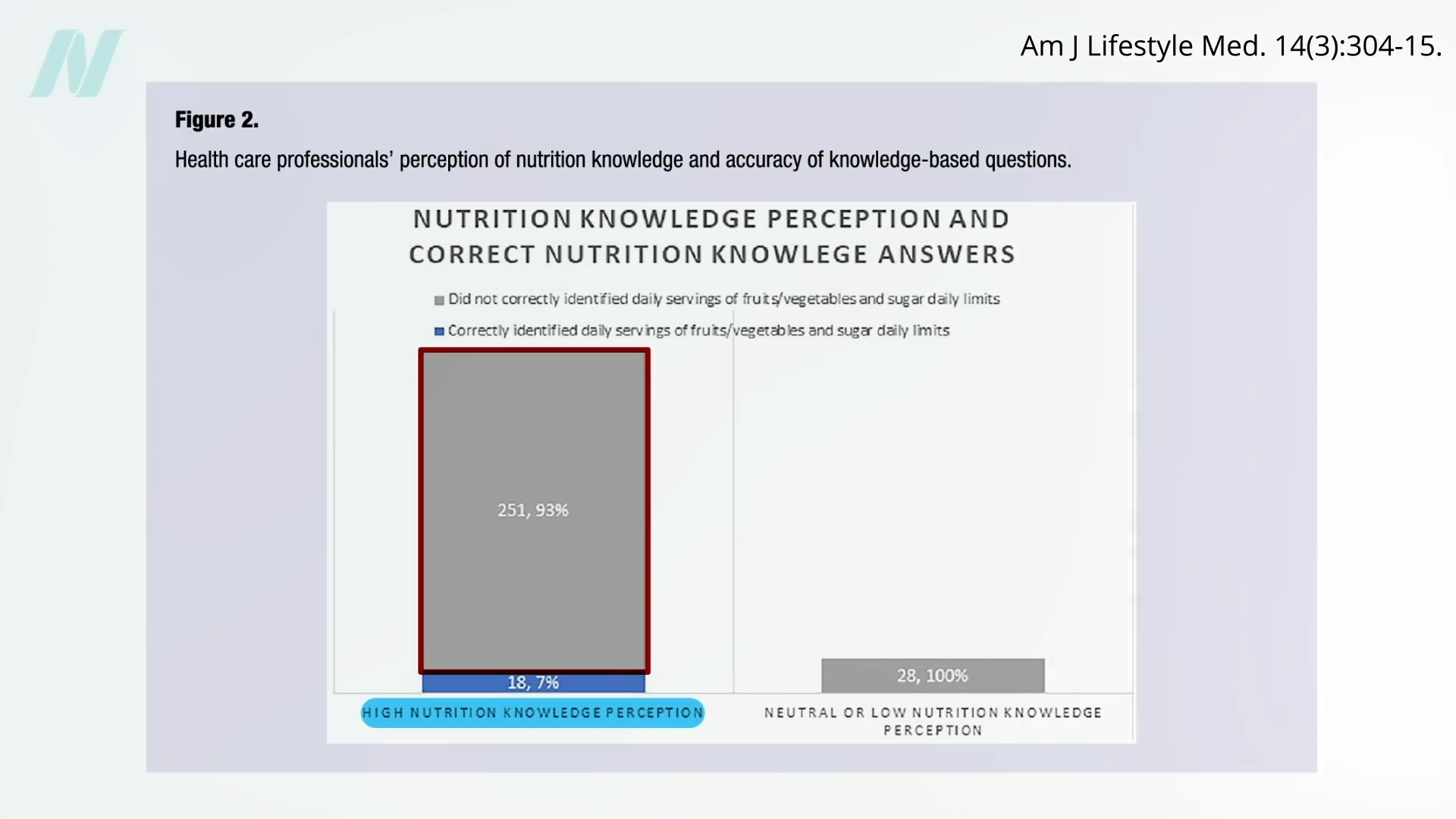Do you know more about basic nutrition than most doctors?
“A poor diet now outranks smoking as the leading cause of death globally and in the United States, according to the latest data.” The top killer of Americans is the American diet, as you can see below and at 0:23 in my video How Much Do Doctors Actually Know About Nutrition?.

If diet is humanity’s number one killer, then, obviously, nutrition is the number one subject taught in medical school, right? Sadly, “medical students around the world [are] poorly trained in nutrition.” It isn’t that medical students aren’t interested in learning about it. In fact, “interest in nutrition was ‘uniformly high’ among medical students,” but medical schools just aren’t teaching it. “Without a solid foundation of clinical nutrition knowledge and skills, physicians worldwide are generally not equipped to even begin to have an informed nutrition conversation with their patients….”
How bad is it? One study, “Assessing the clinical nutrition knowledge of medical doctors,” found the majority of participants got 70 percent of the questions wrong—and they were multiple choice questions, so they should have gotten about a fifth of them right just by chance. “Wrong answers in the…knowledge test were not limited to difficult or demanding questions” either. For example, less than half of the doctors were able to guess how many calories are in fat, carbohydrates, and protein; only one in ten knew the recommended protein intake; and only about one in three knew what a healthy body mass index (BMI) was. We’re talking about really basic nutrition knowledge.
Even worse, not only did the majority of medical doctors get a failing grade, but 30 percent of those who failed had “a high self-perception of their CN [clinical nutrition] expertise.” They weren’t only clueless about nutrition; they were clueless that they were clueless about nutrition, a particularly bad combination given that doctors are “trusted and influential sources” of healthy eating advice. “For those consumers who get information from their personal healthcare professional, 78% indicate making a change in their eating habits as a result of those conversations.” So, if the doctor got everything they know from some article in a magazine while waiting in the grocery store checkout aisle, that’s what the patients will be following.
Of doctors surveyed, “only 25% correctly identified the American Heart Association recommended number of fruit and vegetable servings per day, and fewer still (20%) were aware of the recommended daily added sugar limit for adults.” So how are they going to counsel their patients? And get ready for this: Of the doctors who perceived themselves as having high nutrition knowledge, 93 percent couldn’t answer those two basic multiple-choice questions, as seen here and at 2:39 in my video.

“Physicians with no genuine expertise in, say, neurosurgery [brain surgery] are neither likely to broadcast detailed opinions on that topic nor to have their ‘expert’ opinions solicited by the media. Most topical domains in medicine enjoy such respect: we defer expert opinion and commentary to actual experts. Not so nutrition, where the common knowledge that physicians are generally ill-trained in this area is conjoined to routine invitations to physicians for their expert opinions on the matter. All too many are willing to provide theirs, absent any basis for actual expertise…” Or worse, they’re “often made on the basis of native bias and personal preference, at times directly tethered to personal gain—such as diet book sales—and so arises yet another ethical challenge.” That’s one of the reasons all the proceeds I receive from my books are donated directly to charity. I don’t want even the appearance of any conflicts of interest.
“In a culture that routinely fails to distinguish expertise from mere opinion or personal anecdote, we physicians should be doing all we can to establish relevant barriers to entry for expert opinion in this [diet and nutrition], as in all other matters of genuine medical significance.” I mean, we aren’t talking celebrity gossip. Lives are at stake. “Entire industries are devoted to marketing messages that may conspire directly against well-informed medical advice in this area.”
“Medical education must be brought up to date. For physicians to be ill-trained in the very area most impactful on the rate of premature death at the population level is an absurd anachronism….The mission of medicine is to protect, defend, and advance the human condition. That mission cannot be fulfilled if the diet is neglected.”
A possible starting place? “Physicians and health care organizations can collectively begin to emphasize their seriousness about nutrition in health care by practicing what they (theoretically) preach. Is it appropriate to serve pizza and soft drinks at a resident conference while bemoaning the high prevalence of obesity and encouraging patients to eat healthier? A similarly poor example exists in medical conferences, including national meetings, where some morning sessions are accompanied by foods such as donuts and sausage.”


